I write less on this blog these days than I’d really like. It’s not for lack of trying, either; I’d say I start writing twice as many reviews as I actually finish and publish. There’s two reasons I write, though, and one of them has been very important for my keeping this thing going for the last ten years: I write because I enjoy it, and over the years I’ve become less keen on “forcing” the words to come out of my brain because that’s not fun and is what leads to me periodically burning out and stopping for months at a time. This is why my output has been rather more sporadic recently (at least compared to the first few years I was doing this), but that then runs directly into the second reason I write, which is that I like having a historical record of how I felt about a game at the time that I played it that I can refer to later when arguing with people on the internet. Since I review about a third as many games as I actually play, the blog is now decidedly not that — or at least not a comprehensive version of it, anyway.
So this is the compromise: reluctant as I might be to jump on the end-of-year bandwagon of putting everything I played in a big list in the rough order of how much I enjoyed them, it does afford me the opportunity to say a little bit about each game that I didn’t do a proper review for. Two things to bear in mind before we get started, though. First, this is a list of games that I played in 2021, not games that I played that were released in 2021, which is why there’s stuff like Monster Train and Hypnospace Outlaw in there. And second is that, as ever with these things, the categories are extremely broad and not remotely objective, so do take them with a big pinch of salt.
The Great
Also in this category: Desperados 3
Slipways
The best game I played in 2021, and one which flew largely under the radar. Slipways has you sending probes into an unexplored sector of space to discover planets, and each planet can be colonised with a single settlement that produces (usually) a single type of good. Each colony also demands one or more goods; if you don’t provide it you get big unhappiness penalties that tank your score, but if you do provide it then you level up the planet, producing more goods for exports, more tax revenue, and a bigger score at the end of the game. So at its core Slipways is about building up a network of planets that are connected by a web of interstellar trade routes (called slipways) that allow you to satisfy demand with supply. The initial rules around the placement of slipways are quite restrictive — they have a limited range, they can’t overlap one another, they can’t go through (or even near) planets unless they’re directly connecting to one, and goods will only travel one “jump” down the slipway network, meaning that you need to put a lot of thought into which colonies you build where and how you connect them together so that you’re not blocking future expansion. However, there’s also a nice set of technologies and buildings you can research that let you selectively break these rules in interesting ways that often define a playthrough. Slipways looks great, sounds great, has had a hell of a lot of thought put into UI/UX, and has some very player-positive quality-of-life features like the ability to take back as many moves as you want up until the last move you made that uncovered a new planet. About the only thing wrong with it is the failure to implement Steam friends leaderboards for the daily challenges; otherwise Slipways is everything I could ever want from a space-themed puzzle game.
Valheim
Yes, it’s Early Access, but I was sucked into Valheim last February just like everyone else. It’s the best co-op building game since Minecraft; just like Minecraft I would be a bit hesitant to play it if there was no-one else around to see the things that I had built, but if you have a few friends then it’s a tremendous time, with surprisingly thoughtful takes on standard survival game/crafting mechanics. I will forever be a massive fan of the woodcutting physics, where you have to be really really careful that the huge 40ft pine tree you just chopped down doesn’t land on your head, and the food system is possibly the first food system I’ve ever liked in a survival game, since it’s based around eating different types of food for temporary buffs instead of just topping up a bar and punishing the player if they let it drop too low. But it’s the building system that really stands out; Steam tells me I spent a hundred hours playing it, and at least thirty of those were spent quarrying stone and dragging it back to my island fort so that I could build proper docks and a sea wall. The end result was very worth it since Valheim makes it comparatively easy to build awesome-looking things, and it’s a game I’ll definitely be revisiting once it’s had a few more content patches.
Monster Train
AKA Slay The Spire for people who don’t have the patience for Slay The Spire. Monster Train is the popcorn version of Slay The Spire, with a streamlined structure and a card system that practically invites you to break it. The premise is a nothing, albeit a very stylish one; you’re deploying a variety of minions to defend a train carrying the last embers of Hell from successive waves of angelic attackers. The multiple floors of the train do add an additional tactical dimension to the fights, but the main reason I enjoyed Monster Train so much are the cards. You can pick two of five factions of demons to accompany you on each run, each with its own array of cards you can pick up, and the fun of it is in finding the faction and card combos that are particularly broken. I was very taken with the mouth-monster thing that ate other minions and got permanent stat increases that lasted for the entire run, which paired well with the faction of candle-men who all had limited lifespans and increased in power every time they died. And that’s just one combination; there are countless others, and while Monster Train doesn’t have the longevity of Slay The Spire — by which I mean it’s a fifty-hour game rather than a three hundred-hour one — it’s much better at providing an immediate thrill. It intentionally chooses to burn brightly and quickly over the more subtle pacing and depth of Slay The Spire, which is a choice that I very much respect because sometimes I don’t want to spend 300 hours playing a game in order to get good at it.
Final Fantasy 14: Endwalker
Every time I try to write about Final Fantasy 14 I struggle to come up with the words to properly describe why it has its hooks in me as deeply as it does. It’s operating under twin handicaps of “being an MMO” and “having a pretty bad opening chapter”, but it’s a really good MMO and the expansions have, without a hint of exaggeration, some of the absolute best storytelling in videogames. Each expansion is like a new volume in a long-running book series, a self-contained adventure that builds up the world in the background and lays the foundations for plotlines that later expansions then pick up and run with, creating an overarching story that’s been progressing for eight years now. Endwalker is the final volume of that story, conclusively wrapping up every single remaining plot thread so that the game can have a fresh start for the next expansion1, and while it’s not a perfect finish it’s a good enough ending that it left me quite satisfied. That’s a remarkable achievement for any narrative medium (I’ve lost track of the number of book series and TV shows that ended with the narrative equivalent of a wet fart) but for a videogame, where the story is almost always the first casualty of the development process, it is a truly outstanding one.
Stardew Valley
If you’ve perhaps tried Stardew Valley a couple of times in the past but bounced off it an hour or two in, as I have, then I recommend not going back for another go in 2022 because the worst might come to pass: that this time you actually succeed in getting over that starting hump, and subsequently experience the horrible revelation that managing your pixel farm in Stardew Valley is the digital equivalent of hard drugs.
The Good
Also in this category: Pathfinder: Wrath of the Righteous, Necromunda: Hired Gun, Subnautica: Below Zero, Treasures of the Aegean, Orcs Must Die! 3, Halo Infinite (when you include the multiplayer, anyway)
Wildermyth
An interesting attempt at a tactical RPG with a dynamic storybook narrative. The core of the game has you building up a band of adventurers who engage in 5-10 minute XCOM-style skirmishes against a variety of beasties, but before each battle the game will cut away to a little narrative vignette involving one or more party members, which can set up ongoing plot threads and give characters unique buffs, like a wolf head or a crystal arm or a pet duck. I have to say I don’t think this side of the game worked all that well since it had a tremendous overreliance on working some transformation magic on a target character, and when everyone is rocking a wolf head or a fire arm or a tree leg it becomes much less of a special, character-defining thing. Also after playing through just two of the four campaigns on offer I started to see a significant number of repeat events, indicating that the narrative corpus isn’t as well-populated as it should be to support the frequency with which these events happen. However, balancing that out is the tactical combat, which is extremely good and which does very nicely reflect all of your characters’ various transformations and boons in gameplay — this incidentally lets you break the game in some hilarious ways if you play your cards right, which is something I can always fully get behind.
Quake Remastered
Here’s something I’ve been somewhat ashamed to admit: in spite of how much I go on about it I’ve never actually played Quake all the way through in one go despite owning the full game for at least fifteen years. I’ve always done it piecemeal, playing the odd episode here and there, and I don’t think I’ve ever played through Episode 4 without cheats. The release of the remastered version this summer provided the opportunity to fix that, and to my considerable surprise Quake hasn’t lost a beat. The level design really is the star of the show here, since Quake was made at a time before we felt the need to have our FPS levels resemble actual places; Quake’s levels are a series of more abstract spaces with a lot of moving surfaces and intricate mechanisms that nevertheless remain parsable by human brains (thanks to some brutal limitations on how big the levels were allowed to be) and which never, ever lie to you. If you can see a location in one of Quake’s levels, you can get to it somehow, which makes secret hunting a real pleasure. And if further proof were needed that Quake was something special, the remastered version also comes with all of the expansion packs; I played through every single one of these and they were nearly all terrible, even the new one made for the remaster (Dimension of the Machine, I think) that got rave reviews. None of them have the relentless focus of the original Quake’s levels, which remains untouchably good a full quarter-century after it came out.
Resident Evil HD
This technically counts as a new game — I played the Gamecube remake nearly twenty years ago, but that itself is now so old that it got an HD update six or seven years back that I randomly decided to boot up after finishing Village to see if my memory was playing tricks on me. It wasn’t; Resident Evil definitely feels dated in terms of the controls and the static camera angles, but the omnipresent sense of tension is just as taut as ever and the resource management side of it presented an engrossing tactical challenge all the way to the end of the game. It’s a great demonstration of what the later games threw away in the service of a more action-oriented, zombie-blastin’ approach, as I think Resident Evil HD has aged far better than any of its sequels.
Nier Replicant
Nier Replicant feels a little redundant in the face of Nier Automata’s existence. It’s a remaster of the prequel game to Automata, and the remaster has made the somewhat questionable decision to update all of the gameplay mechanics so that they’re much closer to Automata than they were in the past. As a result it feels like a reskin of Automata in places, except with the word “robots” replaced with the word “magic” — but because the remaster is built on top of an eleven year old game, Replicant is inviting direct comparisons with its sequel and showing itself up as the far clunkier of the two. It’s fun enough nevertheless, and shows the same imagination and exploration of surprisingly deep themes as Automata did2. I would even call Replicant the darker game as throughout there’s a much greater sense of a world that’s coming apart at the seams. If you haven’t played Nier Automata yet then I’d recommend you go and play that first, but if you have played Nier Automata and want more of the same thing in a slightly different package then Replicant is well worth picking up.
Echoes of the Eye
Echoes of the Eye is the expansion DLC for Outer Wilds. Since Outer Wilds happens to be one of the best games released in the last decade it was always going to be a hard act to follow, but Echoes of the Eye does its best, with several excellent ideas leading to the occasional moment where your brain actually needs a couple of seconds to fully process what you are looking at, and then when it does your heart leaps directly into your mouth. There are parts of Echoes that are as good as anything in the base game, and these tend to be the parts that leverage the way your environment evolves as the time loop progresses. You know, the thing that Outer Wilds did really really well. Unfortunately Echoes rather unwisely chooses to make its major gameplay gimmick something that a) is largely segregated from the rest of the game, and thus the time loop mechanic, and b) is mostly just the standard spooky horror game thing where you’re somewhere dark and things are chasing you. Videogames have been doing this for something like twenty-five years now, and it has never, ever worked on me, and so that half of Echoes fell flat on its face. The good bits do make Echoes worth playing, but it’s not the unalloyed delight that the base Outer Wilds experience was.
The Riftbreaker
The Riftbreaker is an ARPG/tower defence/factory game hybrid. Get into your giant robot suit, teleport to alien worlds, build sprawling bases, murder aliens for their precious DNA, research new technology, and then set up huge networks of walls and towers to slaughter the vast alien hordes that periodically spawn to try and exact some revenge for killing their buddies. Unfortunately held back by the concept being a bit too much for the engine it’s running on, and also the initial release being more than a little buggy; I ran into a scripting error that rendered the game uncompletable. Still, I had made it almost to the end by that point with a tower network capable of weathering endgame alien attacks while taking zero damage, so I feel that it would have been a mere exercise in box-ticking to actually finish it. It successfully scratches the Factorio itch of scaling out from nothing to a huge base spanning the entire map while killing thousands and thousands of aliens with ludicrously destructive weapons, and also it was on Game Pass so I didn’t have to pay any money for it, making me significantly better-disposed towards The Riftbreaker than I might be otherwise.
Hypnospace Outlaw
Hypnospace Outlaw is a satirisation of the late ‘90s internet that I’m pretty torn on. Under the hood it’s a digital detective game where you use various hints and clues to find your way around the Geocities-esque “Hypnospace”, at first looking for illegal content and then, later, trying to solve a mystery. The back half of the game goes much harder on the detective side of things than the front half does — you’ll definitely need pen and paper notes for this one — and I enjoyed some of the softer pisstakes of things like Microsoft Bob, desktop pets, ICQ/MSN Messenger and everyone being convinced that their terrible midi music was the best thing ever. However, and this is a big however, the primary joke of Hypnospace Outlaw is “Wow, ‘90s websites sure were unreadable!”, which is communicated via making all of the fake websites in Hypnospace unreadable too. This is funny for about five minutes, and then it’s suddenly not funny any more when you realise you’re going to have to deal with looking at this horrible garish thing for however long it takes you to complete the game. I eventually got over it, but Hypnospace Outlaw really did not make itself an easy game to like.
Yakuza Kiwami 2
I went into Yakuza Kiwami 2 hoping it would recapture some of the ridiculous fun I had with Yakuza 0 back in 2018. And it does, in a way, but only because of something I realised a little too late: the reason they’ve managed to pump out seven of these things with a comparatively small dev team is because each one recycles around 50-60% of the content from the one before. And so despite being a remaster of the original Yakuza 2 in a completely different engine, Yakuza Kiwami 2 still reuses areas, minigames, and character models from Yakuza 0 (which I guess was itself reusing things from other Yakuza games) and ends up feeling like a bit of a knockoff, especially because the stuff that has changed feels like a step down: there’s no multiple fighting styles in this one, and the plot is extremely stupid in a not-fun way. It retains its sense of humour and gets quite a long way on that alone — Kiryu is one of the all-time great game protagonists because he never breaks character and always takes everything that’s happening to him completely seriously no matter how absurd it is — but Yakuza Kiwami 2 did put an end to my plans to play through the entire Yakuza series since I’m not sure I can take another five games of this3.
The Okay
Also in this category: Jupiter Hell, Mini Motorways, Age of Empires 4, The Forgotten City, Resident Evil Village, Back 4 Blood, Deathloop
Aliens: Fireteam Elite
This surprised me immensely by not being derivative, phoned-in trash. It’s actually a pretty solid take on Left 4 Dead (at least it’s a better take on it than Back 4 Blood, that’s for damn sure) except with the zombies replaced with xenomorphs, as well as androids and whatever the hell the white zombie things are that are probably from Alien: Covenant4. The enemy design and AI is surprisingly on point; it manages to make the aliens good horde baddies without cheapening them by making the vast majority of them the equivalent of ant workers that are mostly there to distract you for the big Drones and Warriors, who are the equivalent of L4D special infected and much more like the monsters you see in the films. It also has some excellent weapon design, including the best flamethrowers I’ve seen in a videogame yet. Sadly Fireteam Elite is let down badly by its bland, samey level design and its difficulty settings being more reliant on player stats and progression than they are player skill, and so has basically zero replay value once you’ve finished the campaign. Also it inexplicably failed to play this music in the pre-mission lobby, which is something that even Colonial Marines managed to get right.
Ziggurat 2
Ziggurat 2 is a roguelite FPS where you play a wizard who delves into dungeons blasting zombies, golems and killer carrots with a variety of magic spells in search of the boss room that will take you to the next floor. It’s a cut above other takes on the idea of the roguelike FPS that I have played (such as Immortal Redneck) and the shooter gameplay is pretty polished stuff; it feels a hell of a lot like Quake mixed with Hexen. Unfortunately it shares Hexen’s underwhelming handicap of arming you with splatty magic spells instead of boomy shotguns, making it a bit difficult to get excited about the weapon pickups and unlocks, and it also makes the mistake of starting you off with the most boring characters in the world while being a bit too miserly with handing out new stuff. The art and UI design is also rather uninspired, to say the least, which ensured I fell out of the game about halfway through its campaign. It’s perfectly workmanlike and I had some fun with it, but it really wanted to be a bit snappier with the progression to induce me to actually finish it instead of feeling it was too grindy and giving up.
Call of the Sea
Yet another walking simulator, and one which I felt definitely started to outstay its welcome despite its Lovecraft-inspired subject matter; you’re playing a woman who has travelled to a remote Pacific island in search of her missing husband, who disappeared while looking for a cure for her “genetic condition” which anyone who is familiar with Lovecraft will instantly recognise and thus see exactly where the game is going from very first minute. It’s still worth playing through because this is actually not a half-bad take on it which at least appreciates that Lovecraft has been done to death and attempts to subvert those expectations somewhat. Call of the Sea’s real problem is that it’s about two hours too long — I definitely prefer walking simulators to be on the shorter side so that they don’t become tiresome — and some of its puzzles are absurdly obtuse (Tillenghast Resonator, anyone?). There’s some great setpieces and the game looks fantastic but I found myself rather bored by the end of it in spite of myself.
Risk of Rain 2
Hades has raised the bar for roguelikes, and Risk of Rain 2 conspicuously fails to meet it. You run around a series of arenas shooting baddies and picking up powerups until a boss spawns, you kill it, and you move onto the next one. This is much more in the style of older roguelike where it’s theoretically possible to completely break the game if you get the right pickups, and which (again) in theory should be right up my alley. Unfortunately it seems that the game has been balanced around the player always being that powerful, meaning that if you don’t get the pickups you get obliterated in seconds by massively OP enemies with nothing you can do about it. There’s some interesting character design here and it’s also co-op — in fact I think it’s almost intended to be played co-op since it’s the only way you’ll realistically survive to reach the end — but the incredible amount of variance and the additional unevenness caused by the move to 3D means Risk of Rain 2 falls far short of the original.
Loop Hero
Sitting halfway between an idle game and an ARPG, Look Hero has your tiny hero marching around a circular loop which is empty at first and populated solely by crappy slime monsters. You play cards to create landscape and structure tiles around the loop, which in turn spawn more interesting monsters to fight which give better loot. There’s some very cool interactions between different types of tiles and I wish the game had focused a bit more on finding those to spawn the rarest monsters, but instead there’s a bit too much emphasis on the idle side of things as the monster stats all inexorably increase each time you go around the loop anyway, and so the focus is instead on gaming the tile spawns and loot system to get as powerful as possible with as little risk as possible before spawning the boss. Still, it let me play a proper skelemancer in an ARPG for the first time in what feels like forever, so it did do something right.
Inscryption
A card game that thinks it’s far smarter than it actually is because 2021 indie developers are all trying to channel Jonathan Blow now. Split into three segments, the first part takes a lot of inspiration from Hand of Fate in that you’re playing against an actual in-game character who is sitting opposite you laying out the board and their cards, and I do like it when card games do that; the board and pieces have great tactile physicality and you can do some incredibly broken stuff with the cards. However, it doesn’t sit very well with the escape room elements that have been mixed into it, the UI is not particularly good, and anyway the entire thing gets jettisoned two hours in as you progress to parts two and three which are much, much worse. Mostly succeeded in making me wistful that the Hand of Fate developer folded shortly after releasing the sequel.
Scarlet Nexus
An anime action game set in the far future where humanity is under attack from weird monsters (and I mean weird weird, not just “we played Silent Hill a couple of decades back and decided to steal their ideas” weird) and you’re part of an elite force who battles them using techno-superpowers. Also because this is a Japanese game everyone’s a teenager and you have the same social dates/levelling up your character bonds gameplay that you can find in things like Persona or Fire Emblem. There are two playable characters in Scarlet Nexus and each of them gets half of the plot, so in order to understand the entire game you have to play through it twice, once as each character. This is a bit of an ask, but fortunately I don’t think it matters because the plot is totally incoherent anyway. The action stuff is decently executed, making it a good turn-your-brain-off-and-hit-monsters game, but no more than that.
Humankind
Humankind was a supposed Civilization competitor that mostly made me think that perhaps I’d been too hard on Firaxis over their handling of Civilization 6. Humankind is just as insufferably smug while being far more insubstantial; most of what is good here has been lifted from Endless Legend such as the city design and the multi-turn battles, and it’s just like every other Amplitude game in that it takes little time to actually characterise your empire as a place and instead chooses to take a pretty soulless focus on watching your numbers go up. Endless Space was abstracted enough that they could sort-of get away with this, or at least not have it drag the game down too much, but it’s absolutely poisonous for a Civilization-alike. I hate to say it, but Civilization 6 does a far better job of this these days (while also retaining every single one of the mechanical and UI fuckups that made me spend 9,000 words laying into it a half-decade back) and I’d actually recommend playing that over Humankind.
The Really Not Worth My Time
The Gunk
I’m struggling to say anything nice about The Gunk whatsoever. That’s not to say that it’s bad, it’s just utterly unremarkable and unambitious. You’re a scavenger exploring an alien planet that’s been taken over by a mysterious life-leeching substance called, imaginatively, the Gunk, and you can fix things up as you go by hoovering up the Gunk with your robot arm. Given Image & Form’s prior work — they made the excellent Steamworld Dig 2 — I definitely wasn’t expecting The Gunk to be quite so staggeringly unimaginative with this premise, though. The game is totally linear with zero side areas and the only “optional” content being five-second puzzles that reward a few extra materials for crafting the least impactful set of upgrades I’ve yet seen in an action-adventure game, and The Gunk doesn’t actually do anything with its titular substance. At the start of the game you’re hoovering up the Gunk to clear a path, and at the end of it you’re hoovering up the Gunk to clear a path, except a boss is shooting at you while you do it. There’s no different types of Gunk, no different ways of removing the Gunk, and in fact The Gunk itself is one of the most mechanically shallow games I’ve ever played. So while it might not be bad bad, being such an outright nothing of a game is still enough to land The Gunk down here.
Final Fantasy X
This category was originally called something much more derogatory and I felt kind of bad about putting Final Fantasy X down here, because my hating Final Fantasy X as much as I did was partly a function of it not having aged well at all. It’s twenty years old and while the Remastered version available on Steam smartens up the textures and makes some nice QoL features available it’s still obviously, painfully a game released in 2001 at the very start of the PS2 era. Where is the world map? Why is it making me walk down a linear path time and time again? Why is it making me play Blitzball, for god’s sake? None of this makes any sense when viewed from 2021, and it’s all coupled with Nomura’s visual aesthetic being at its most insufferable. I am acutely aware that there are people out there who have the same visceral reaction to playing Final Fantasy 8 for the first time; 8 happens to be my favourite Final Fantasy that isn’t an MMO, but if you don’t have the nostalgia for it then I can see how it might be difficult to grasp the appeal. I’m sure the same is true of Final Fantasy X, to a degree, but whether you’re coming to it in 2021 or you played it on release day in 2001, I refuse to believe Tidus is a good character. He is utterly obnoxious and I hated — hated – every single moment I spent in his company, which is a bit of a problem since he’s the protagonist. And no, I won’t accept any argument that “he gets better later!” because the only way he could get better later is if somebody else shot him in his stupid laughing face and replaced him as the main character.
Maneater
Maneater is a one-joke game where you’re a shark and you swim around eating things to get bigger. Inexplicably Maneater is not a ninety minute throwaway game, which is about as much gameplay as this concept can support, but instead took me just over five hours to finish. Even more inexplicably it’s open world — actually, no, that part I kind of get, because what else are you going to do with this shark other than have it swim around all of the question mark symbols doing scavenger hunts and assassination missions? If that wasn’t bad enough, Maneater tries to be funny in between all of this tedious janitor work. I think it’s trying to channel schlocky ‘90s classics like Carmageddon, except there’s a reason we often talk about 1995 like it was 1955; the humour has not aged well, and even if it had the writers behind Maneater are not exactly seizing this opportunity with both hands (presumably they’re holding one back to cover their face in shame), and so Maneater comes off as a tacky, puerile experience which also becomes immensely boring the moment the novelty of playing a shark wears off. Which is about thirty minutes in.
The Ascent
Six months later and it’s difficult to remember why exactly The Ascent drove me up the wall to the extent that it did. Perhaps it was the awkward attempt to fuse a twinstick shooter with an ARPG which led to neither half of the game being detailed enough to really engage my brain. Perhaps it was having the second-worst set of ARPG loot that I have ever seen5, as The Ascent thinks dropping seven of one specific type of gun and five of one specific pair of trousers will be gratifying for the player instead of exasperating me as I repeatedly have to clear out my inventory of junk. Perhaps it was the mission design and the level design and the almost total lack of fast travel points resulting in my having to traipse back and forth across what seemed like the entire city multiple times in a row just to get a single fetch quest done. Perhaps it was the terrible balancing — The Ascent very much feels like it’s intended to be played in co-op rather than single-player — which meant I was regularly fighting enemies five levels higher than I was on the critical path and needed eleven attempts on the final boss. Whatever it was, the one thing I do distinctly remember about The Ascent was making jokey comparisons to legendarily-terrible ARPG Space Siege that later became completely earnest. The cyberpunk city is a neat visual achievement, but the rest of the game is just poorly conceived, designed and executed from start to finish.
Mechwarrior 5: Mercenaries
If you’ve been following this blog for a while you’ll know I have a bit of a Giant Robot problem. I loved BattleTech. I liked Mechwarrior Online, before Piranha drove it off a cliff. I was even a lot kinder to subpar multiplayer shooter Hawken than I probably should have been — certainly a lot kinder than the market was given that the developer folded a year or two afterwards. Given that, you’d think Mechwarrior 5 would have a very low bar to clear in order for me to judge it a success, but even now, two years after release, it remains a laughable, barebones attempt at a `Mech simulator. All of the missions are procedurally generated and consist of “go to the objective marker and shoot enemies until they’re dead”. All of the ‘Mech vs ‘Mech battles devolve into running in circles while shooting at each other, because that’s all the pathetic ‘Mech AI can manage. The enemy spawning system is a joke, as it blatantly materialises enemies out of thin air the moment your back is turned — this is because the maps have far more geometry than the terrible AI pathfinding can cope with so it needs to spawn units right next to you to give them a fighting chance of not getting stuck on terrain. Playing Mechwarrior 5 isn’t remotely satisfying, it’s just sad, and I deeply wish the license issues could be resolved somehow so that I could buy a working copy of an actually good Mechwarrior game instead of having to deal with this half-arsed tripe.
Evil Genius 2
It’s James Bond Villain Simulator Evil Genius again, except where Evil Genius was heavily flawed but largely enjoyable, Evil Genius 2 is just totally crap. The world map has been taken over by mobile game timers, traps are so weak that walking through a full killbox barely knocks off 10% of an enemy agent’s health, the game both treats minions as completely disposable (which is fine) and then expects me to micromanage them individually via a UI that was one step removed from a spreadsheet (which is fun when twenty of them just died in the latest agent incursion and I have to assign replacements), and I spent an absolutely criminal amount of time just waiting around. The pace of expansion and the proliferation of those mobile game timers mean that there’s just nothing to do for the vast majority of your time with Evil Genius 2, a game that seems far more concerned with its comedy voiceovers from the likes of Brian Blessed than it is with its actual gameplay systems. I live just down the road (or to be more accurate, just down the canal) from Rebellion’s Oxford office, and Evil Genius 2 is so bad that I was sorely tempted to walk down there and give them a piece of my mind.
Dark Alliance
For some time now I have been hung up on the fact that PC Gamer gave Dark Alliance 82 percent when they reviewed it. Eighty. Two. Percent. For a co-op game that basically didn’t work in co-op, where trolls and goblins float along a foot above the floor, where the big minibosses go from standing up to lying down without any intermediate animation frames, where your own attacks might just slide harmlessly off of the enemy models depending on how the game was feeling at that particular moment, which looked a hell of a lot like it was crippled with lag and desync even when I played it in singleplayer, and which, even if all of this were not true, is still one of the most generic and charmless takes on an D&D action game possible. It’s not quite the worst game I played this year — ironically that honour goes to a game that PC Gamer gave an even higher score to — but it is the best demonstration of how ridiculous the concept of “review scores” are, and, if I was feeling particularly nasty, the concept of “games journalism” as well.
Cruelty Squad
I’m going to start with full disclosure: I made it just over an hour into Cruelty Squad before slamming that “Refund” button in Steam, which would usually disqualify a game from appearing in any of my writing due to insufficient playtime. But I have a particular beef with Cruelty Squad, a game that I have repeatedly seen crop up on GOTY lists: it is one of the most intentionally and aggressively unplayable games I’ve had the misfortune to encounter. The colour scheme is 100% garish greens and reds and browns, the result of a bad acid trip that makes me want to vomit. The UI is a series of indistinct gif-buttons which are so unreadable I accidentally loaded and spent ten minutes in the tutorial zone without realising it was the tutorial zone. The control scheme is just weird, having decided to make the simple business of reloading your gun unnecessarily difficult — I can think of exactly one game that’s even gotten close to nailing an Active Reload mechanic6, and it sure as hell isn’t Cruelty Squad. Now, if you listen to the developers, and all of the people who are putting the game on their GOTY lists (and PC Gamer, who gave it ninety-three percent), this hyper-unfriendliness is the whole point, and the game is actually making pointed commentary on the ghastly nature of consumer culture and the precariousness of existing in a capitalist society. But then Disco Elysium also did that, and it did it while not completely fucking sucking to play as a videogame. I don’t care what underlying message the game may or may not have because it has to be playable on at least a basic level in order for me to hear it. But Cruelty Squad doesn’t seem to care about that; it’s quite happy to be broken in some very fundamental ways, to be nothing but horrible colours and mechanical friction, and it has the gall to try and convince me that this is Good, Actually, like somebody trying to argue they’re a freeman on the land in a court of law. Ordinarily I would find this quite funny, in a pathetic sort of way, but since the Overwhelmingly Positive rating Cruelty Squad has on Steam indicates a lot of people have actually been taken in by this argument I just find it offensive instead. It’s because of this that there’ll be many more games like Cruelty Squad in the future, and I am not looking forward to them.
- This is presumably going to come hand-in-hand with some extensive remodelling of the new player experience so that they don’t have to play through 200 hours of story to get to current content. ↩
- While doing the irritating videogames thing of having one party member spend the entire game fighting monsters while wearing nothing but lingerie, just because. ↩
- I started Yakuza 2 in 2019 and finished it in 2021; in between I skipped straight to Like A Dragon, which has its own significant problems but which also mostly felt fresh and new thanks to retooling itself into a JRPG. ↩
- Which I still haven’t seen after the Prometheus debacle. ↩
- First place goes to Chaosbane. ↩
- It’s Synthetik, and even then it’s extremely borderline. ↩

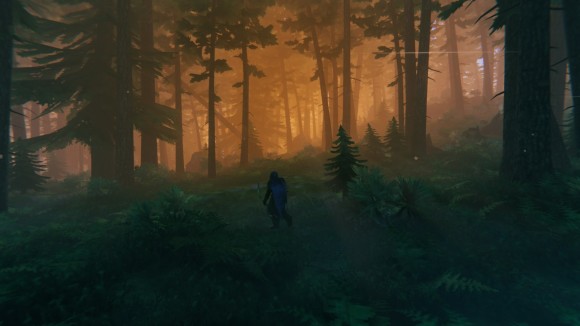
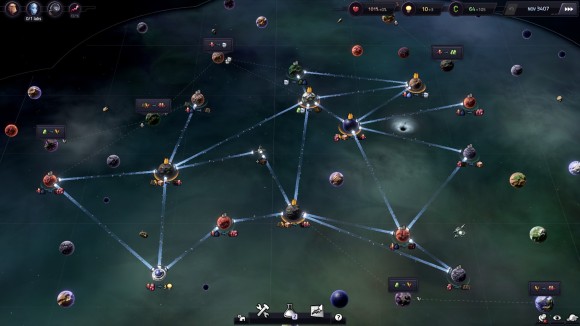
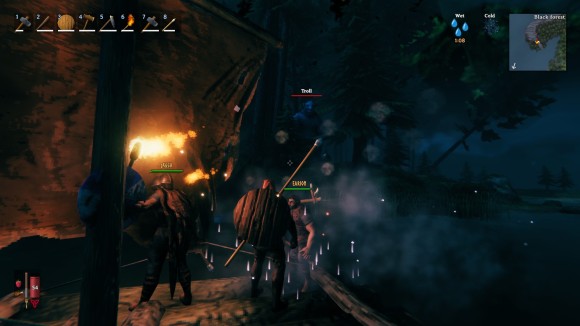
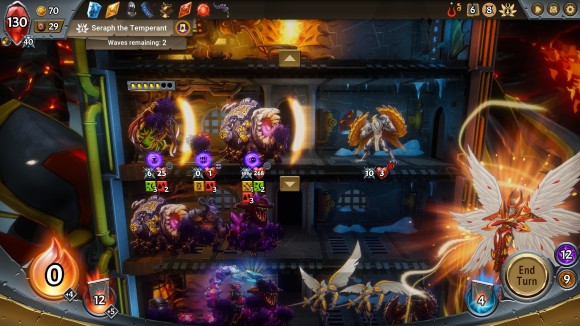
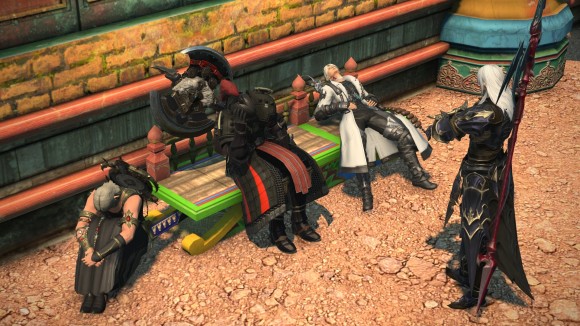
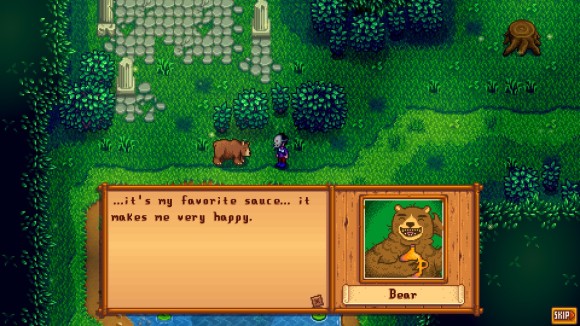
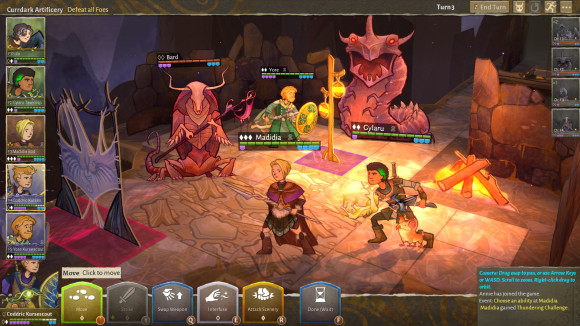
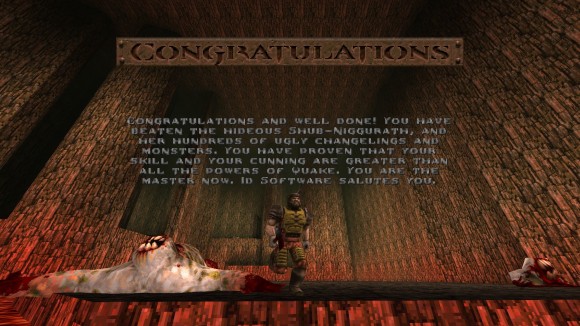
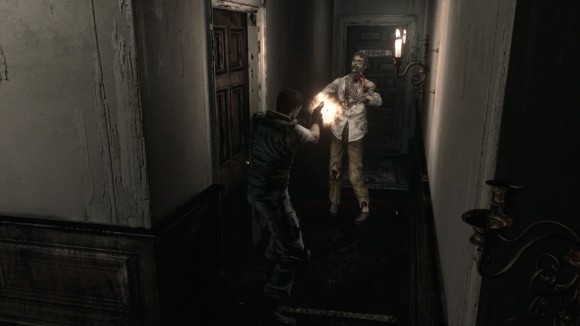
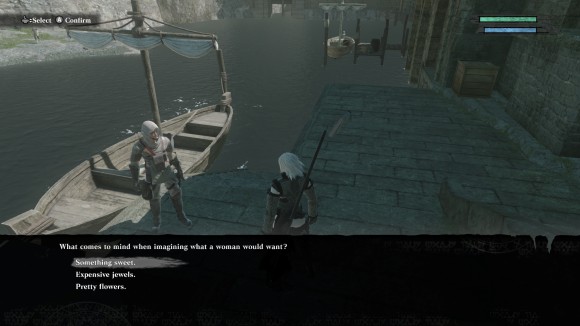
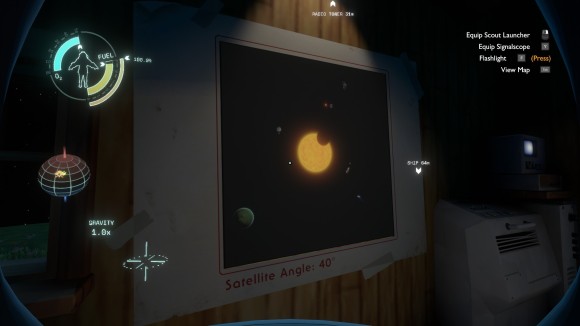
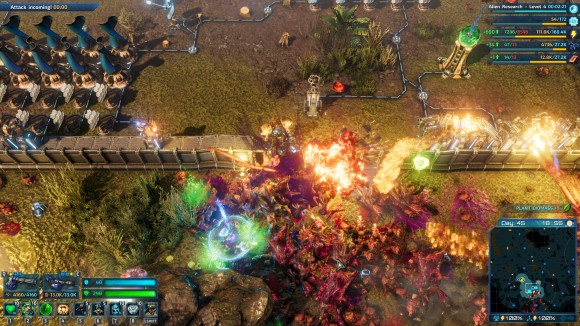
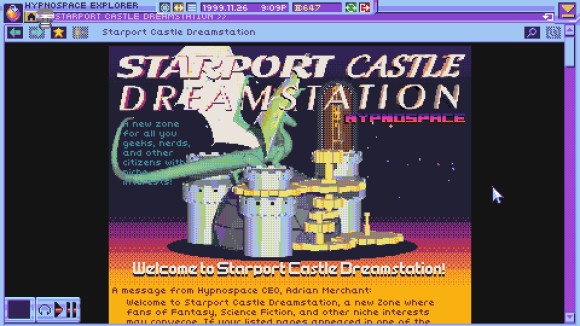
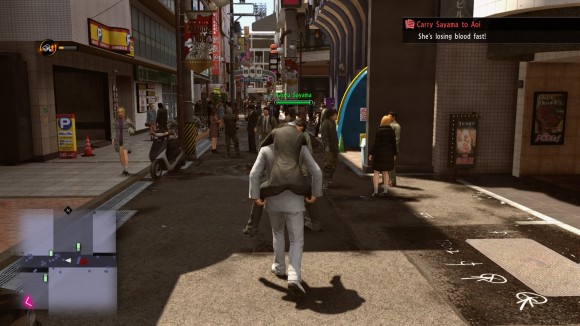
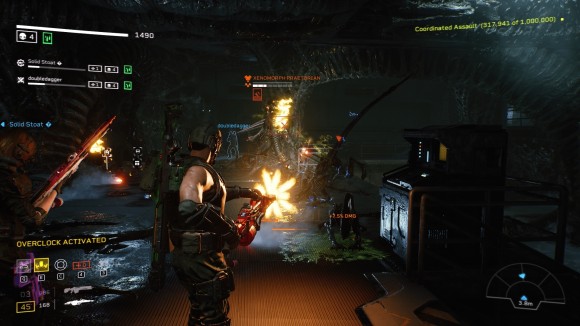
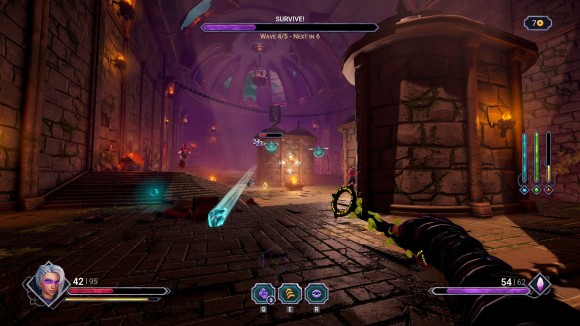
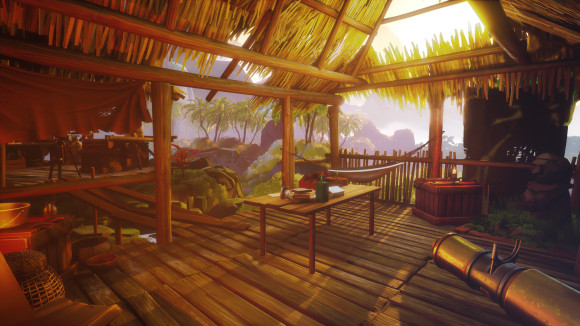
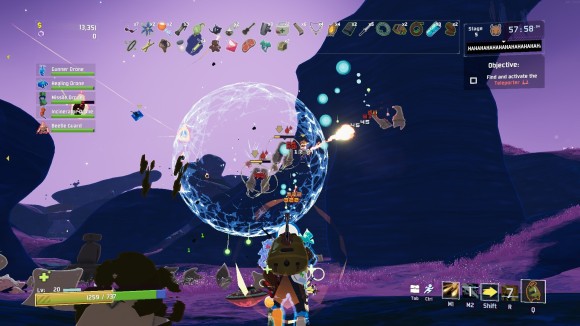
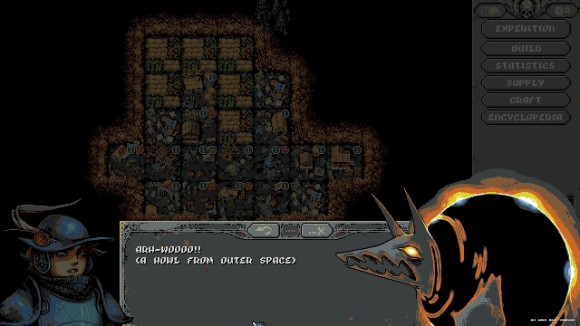
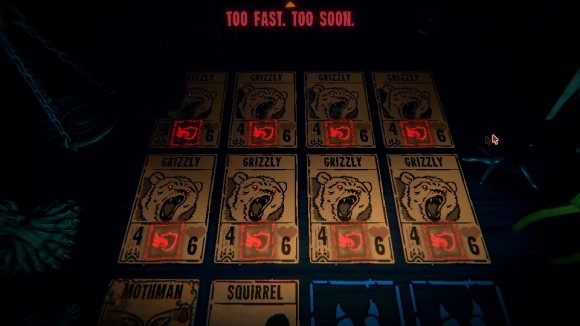
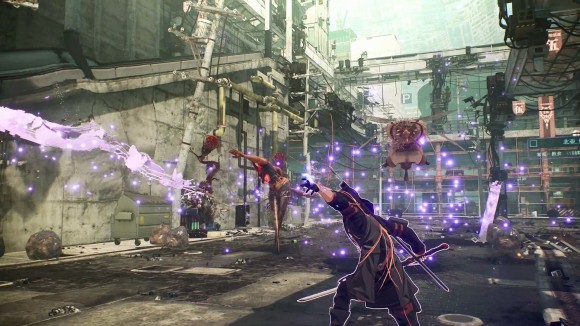
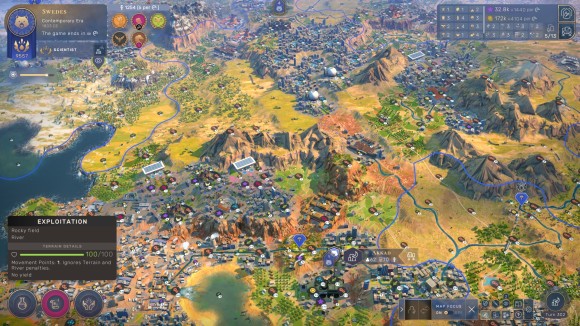
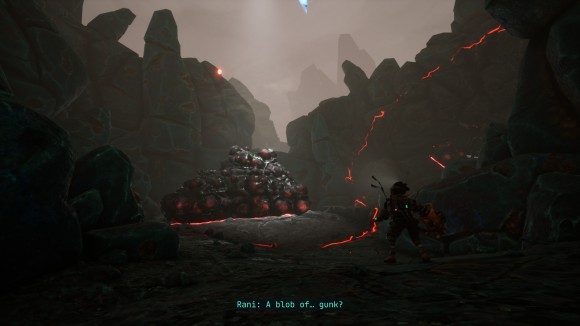

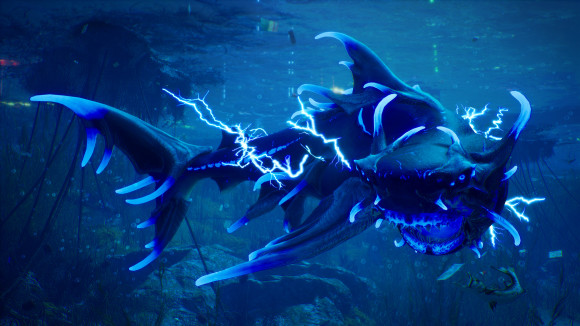
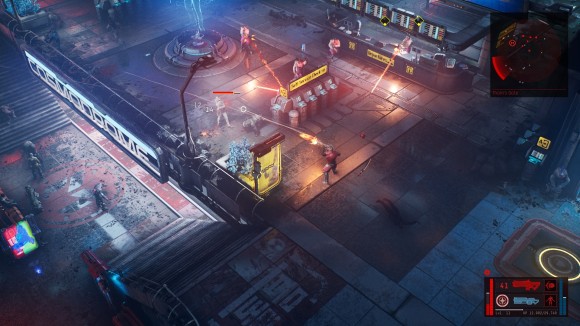
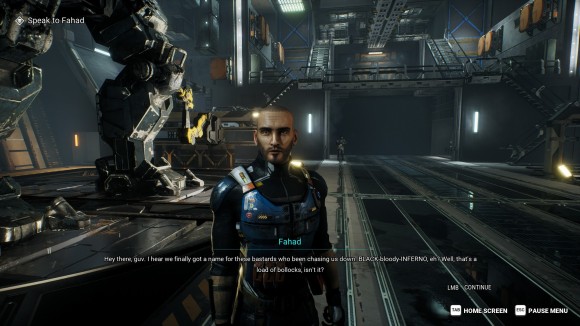
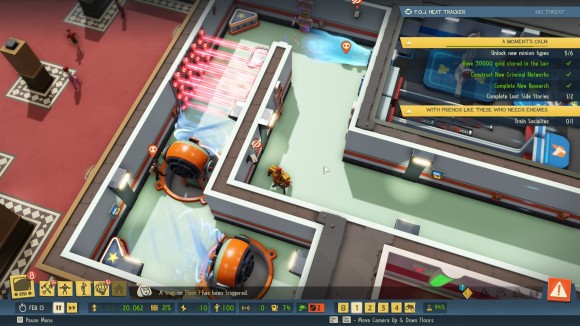
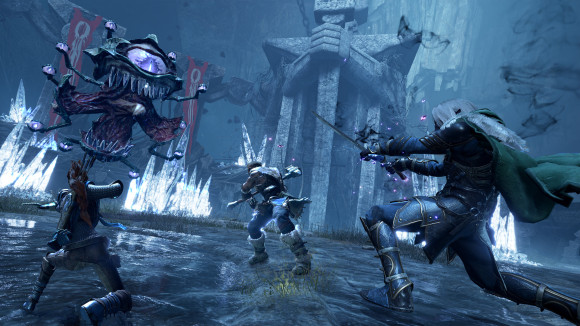
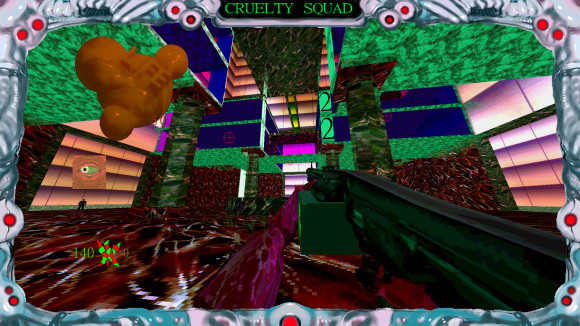
Happy New Year and thanks for all those words! I think you’re quite wrong re: Humankind vs Civ 6, as the latter just can’t be redeemed… but still happy to read your thoughts. A bit of articulate, cogent contrarian opinion (wrt my own) is welcome!
Happy to see this kind of post!
Of the games you’ve mentioned Wildermyth has been a biggest disappointment to me. People praise it as a second coming of RPG genre and it’s… okay, as you say. The characters are easier to remember and distinguish than your usual XCOM cast, and the combat is good, but that’s about it. I’m approaching the end of the second campaign and I already see repeating events. I see the potential for tactical battles to be more interesting on higher difficulty levels, but by that point story content would probably feel like a repeating distraction.
This steam sale I got Slipways and I already have Stardew Valley so I guess I have pointers. One of this day you’ll make me try FFXIV.
Also you’re forgetting that the real winner in Civ VS Humankind fight is Old World (not to be confused with New World our Outer Worlds).
Happy new years!!
Long time reader first time commenter. Just wanted to say I love your blog and eagerly await all your reviews.
I thought I was done buying games in this year’s sale, but appaerently not
Thanks for the yearly wrap-up post! I will give Slipways a spin thanks to this, as it flew under my radar.
For whatever it’s worth, I agree that Wildermyth was Very Good but not quite Great, and certainly not the second coming of RPGesus that some have been claiming. It’s still very much worth playing and I have been recommending it to friends and enjoying it myself nonetheless – a solid 30-50 hour title, but not 300+. I do think they this kind of procedurally generated emergent storytelling is going to become a bigger part of our game narratives in the future. So this is an imperfect glimpse of the future, in a sense.
That said, I shed a tear with your ranking of both RoR 2 and Loop Hero… the latter I actually did NOT like at first but it really grew on me over time in a way that Stardew Valley seemed to do for you, and I hope it gets more content soon.
And RoR 2.. my stars, it is one of my favorite Roguelikes of all time. I am a fan of RLs of all shapes and sizes from Rogue/Nethack to the modern stuff. I sincerely think RoR 2 is one of the best balanced and most ridiculously fun of them all. It’s 8/10 on single player, but 10/10 when played coop with a group that understands how to play on Monsoon difficulty (fast and furious, grab a couple items and kill the boss asap… don’t waste time).
I also loved and still love RoR 1, but 2 just works so well for me, especially coop, and I’m almost as excited for the RoR 2 expansion next year as I am Total Warhammer 3… and that is saying something
The biggest surprise this year for me was actually Mass Effect: Legendary Edition. I somehow slept on the original trilogy for over a decade and then got LE on a whim during the Steam summer sale. I thought I’d “casually” play it here and there, and instead blinked and somehow 300+ hours of my life and my entire summer and autumn had disappeared into a completionist play through of ME 1-3 as well as Andromeda (which I really enjoyed and despite its bloat I felt it was underrated). I’ve never been so engrossed into the lore and stories of a game at one time in my life. It was amazing.
So Mass Effect takes the cake, but some honorable mentions from me this year:
- Rift Wizard (speaking of fun and difficult Roguelikes… this one is great. It’s like if Brogue and Master of Magic had a baby)
- Warpips (a solid indie… fun, casual and great for both short or long bursts of play, it’s surprisingly addicting with a friendly and responsive dev)
- Hero’s Hour (HoMM meets auto battler that is still in open beta on itch.io but I’ve liked it so far… as I’m a bit of a HoMM fanatic… looking forward to the Steam release in 2022)
- Despot’s Game (StS-like dungeon crawl auto battler with a high score competitive twist… it’s very fun)
- Trials of Fire (bit of mashup between StS, Diablo 3 and Final Fantasy Tactics… a very good fantasy strategy team building tactical battling game that I’ve been recommending a lot)
- Gloomhaven (as a fan of the IRL board game, this is one of the best PC game adaptations I have ever experienced, it’s faithful and streamlines everything about the physical game and even adds to it with the Guildmaster mode. It’s fun solo or with friends, I love it)
- Cyberpunk 2077 (not perfect but nonetheless a very good game in its current state… it was just released too soon and desperately needed a year of early access, in my opinion… but having just dissolved a chunk of my life into Mass Effect, I came back to this one and only appreciated it more).
2022 is going to a big year for gaming, I predict. On the radar is TW: WH3, Baldur’s Gate 3 full release (I’ve already thoroughly enjoyed the EA state it’s in) the Risk of Rain 2 expansion, Songs of Conquest, Master of Magic remake and Elden Ring… and maybe a Steam Deck to boot!
Cheers!
Going to once again say that I like FFX-2 significantly more than FFX. It’s a much more fun JRPG and kind of ahead of its time mechanically.
I will also stump for FFXII The Zodiac Age as an excellent and often misunderstood entry.
And as far as remasters go, FFX HD almost ruins the experience by dumping unavoidable super bosses into the endgame.
As a serial Yakuza game player (finished 0 through 5 in 2021 and just started on 6), I’d suggest skipping the remasters of 3 (aged poorly, un-fun combat) and 4 (thoroughly incomprehensible plot) but giving 5 a chance if you generally like the series (particularly if you can get it on Game Pass). There are multiple player characters with distinct fighting styles, and while it too reuses many minigames, each character at least gets a large distinct “side story” minigame (on approximately the scale of Cabaret Club Czar) with new mechanics.
The story’s not high art, but it’s mostly coherent and actually tries to develop its characters as people a bit instead of taking a basic “Kiryu-saves-the-day” plot and festooning it with complex conspiracies and plot twists.
One thing that helped me make sense of the franchise was an idea I think I saw on the Yakuza subreddit, which is that Ryu Ga Gotoku Studio only really began to lighten up and parody itself around Y5 (which preceded 0 in publishing order). They managed to get a little bit of it back into the Kiwami titles, but in some ways I think Y5 is a closer relative to Y0 than either Kiwami is, which makes sense in view of the order in which the non-remakes were originally made.
Thanks for all the reviews–I’ve really enjoyed browsing the archives here over the last few months.
Love this post. My thoughts on the few that I’ve also played:
* Slipways is indeed very good. It’s a bit of a brain-burner; it’s more abstract than it looks (although not *that* abstract); it’s definitely not for everyone, and I personally can only take it relatively small doses, but I do keep coming back.
* Monster train is amazing. Probably my best game of 2021 (like you, I came to it a bit late). I’ve sunk well over 100 hours into it, and still not quite 100%ed it (including expansion), but I agree it doesn’t have quite as high a skill-ceiling as Slay the Spire.
* Stardew Valley is good. Personally I’m pretty sure I’m finished with it now, but I got a lot of fun out of it.
* I never played Ziggurat 2, but I did play the first game. I enjoyed it a lot, but had to give up because of a game-breaking bug- the game sometimes froze mid-run, and since it deletes saves when loaded, this terminates your run- you can’t just reload the game. Very disappointing, and I wouldn’t buy Ziggurat 2 because of this.
* Loop Hero is dreadful, and I would rank it a lot lower. Really don’t understand the buzz its generated.
* Inscryption is… interesting. The first act is pretty good, actually- if the whole game were as good, I’d be quite happy to recommend it. Basically no disagreement with what you’ve written.
Monster Train might not have the skill ceiling as high as StS but I like its approach to the formula. It expects you to win your first, maybe second game. Griftlands, another good game, is similar. In StS you can’t even attempt to “win” (kill the heart) before you’ve unlocked all the characters and won act 3 as all of them. Only after you’ve achieved that you can try to win the game. And then you get ascension levels which only gradually rise the difficulty. This is a crazy difficulty curve. I think a lot of people were hurt by StS. I know I’ve been, I still didn’t kill the heart with the 4th character. Monster Train might not have that feeling of pride and accomplishment but it’s much more approachable without sacrificing complexity.
Happy New year. I understand the part about you liking to write and the obstacles, but pls write some more in 2022.
This was a goos list.
It’s always a treat to read your thoughts, even (especially?) on things I wouldn’t have given a second look. You have fans! Write as much or as little as you feel like, but it’ll always be appreciated.
Totally agree with this!
Hear hear!
As someone who did in fact bounce off stardew valley multiple times (despite buying it on multiple platforms) I’m curious what you found the tipping point to be?
Also, Marvel’s Guardians of the Galaxy has what I consider to be a decent implementation of the active reload mechanic.